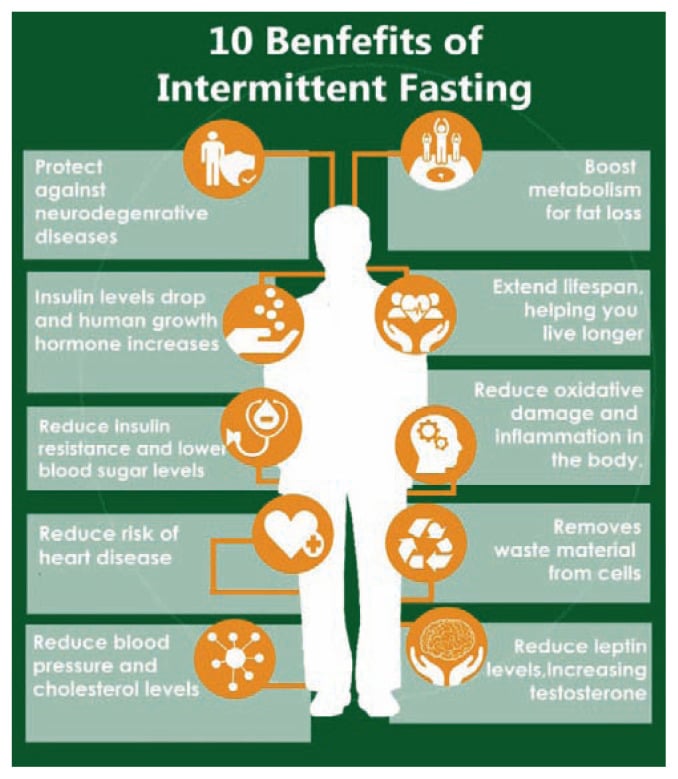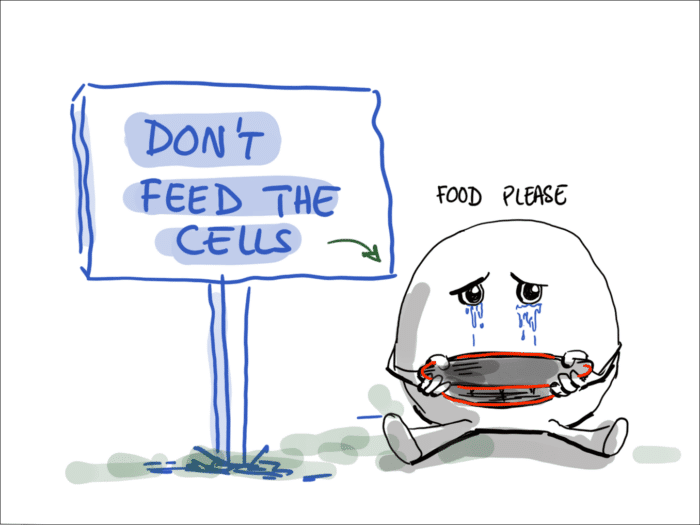Intermittent Fasting
Intermittent fasting and dry fasting have been documented to help with autopagy which is programmed suicide of sickly cells. We recommend easing into fasting. There are many different protocols. 16:8 is common where you would fast for 16 hours and then resume eating the remainder of the 8 hours. Intermittent fasting is done intermittently, and can be done 1-3 days a week. Intermittent fasting is different from a diet.
Fasting even for a short time produces ketosis, a state where there is not enough circulating blood sugar (glucose) and your cells start to break fat down into ketones.
“Dry fasting” refers to not even drinking water or any liquids, whereas “wet fasting” allows for drinking of zero calorie drinks like water to avoid dehydration.
Fasting, even intermittent fasting should be done under the supervision of a physician. It is not advisable to fast if you are pregnant or are elderly, or have issues with blood glucose control.
Fasting off “The COVID-19”
The SARS-CoV-2 outbreak has led to an increase in sedentary lifestyles compounded with the loss of access to public exercise facilities and limited fresh grocery supply.


Long COVID and Dry Fasting: A New Horizon in Recovery Strategies
The global pandemic has brought about a plethora of challenges, and one of the most concerning among them is Long COVID. It’s not just about overcoming the virus; for many, the battle continues with lingering symptoms and long-term health struggles.
4 intermittent fasting side effects to watch out for
Over the last several years, intermittent fasting has become increasingly popular for its promises of improved health and weight control. The idea is that it's easier to sharply restrict calories a few days a week or to limit eating to a shortened "eating window" each day.


2024 Scorch Protocol 28 Day Protocol for Long Covid
Dry fasting is said to be about 3x stronger than water fasting, simply based on mechanisms like 3x faster acidotic crisis and higher fatty acid/ketone production. But saving time is not its only benefit
A Guide to Intermittent Fasting
Fasting, by definition, means abstaining from eating. So technically any period in which you are not eating a meal, you are fasting. But for health and wellness, the idea of intermittent fasting means limiting food intake to a short window during the day and taking in only fluids such as water, tea, or coffee for the rest of the day.

